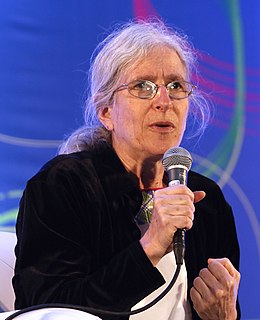A Quote by Kevin Mitnick
Oracle, for example, has even hired people to dumpster dive for information about its competitor, Microsoft. It's not even illegal, because trash isn't covered by data secrecy laws.
Related Quotes
Microsoft is in a court battle with the Department of Justice. The DOJ is saying, "We want information from your data center in Ireland. It's not about a US citizen, but we want it." Microsoft said, "OK, fine. Go to a judge in Ireland. Ask them for a warrant. We have a mutual legal-assistance treaty. They'll do it. Give that to us, and we'll provide the information to you in accordance with Irish laws."
Like other discriminatory legislation in our country's history, immigration laws define and differentiate legal status on the basis of arbitrary attributes. Immigration laws create unequal rights. People who break immigration laws don't cause harm or even potential harm (unlike, for example, drunk driving, which creates the potential for harm even if no accident occurs). Rather, people who break immigration laws do things that are perfectly legal for others, but denied to them--like crossing a border or, even more commonly, simply exist.
There is so much information that our ability to focus on any piece of it is interrupted by other information, so that we bathe in information but hardly absorb or analyse it. Data are interrupted by other data before we've thought about the first round, and contemplating three streams of data at once may be a way to think about none of them.
Data isn't information. ... Information, unlike data, is useful. While there's a gulf between data and information, there's a wide ocean between information and knowledge. What turns the gears in our brains isn't information, but ideas, inventions, and inspiration. Knowledge-not information-implies understanding. And beyond knowledge lies what we should be seeking: wisdom.
We get more data about people than any other data company gets about people, about anything - and it's not even close. We're looking at what you know, what you don't know, how you learn best. The big difference between us and other big data companies is that we're not ever marketing your data to a third party for any reason.
There is a real hunger for information about Obama and a sense that information is not being covered or, in some cases, even being withheld. There is a sense that there are elements of the media that are protective of Obama, that they would rather block a story that is embarassing about Obama than let the American public decide.



































